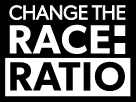Our recent ED&I Knowledge Share Forum proved to be a thought-provoking session bringing together ED&I professionals from across our members.
Rachel Sadke, Director, EY, begun the session outlining EY’s report; DEI Interventions that deliver, which was produced in collaboration with leading campaigns including Change the Race Ratio, Progress Together and the 30% Club.
At a time when action on DEI is under question in the US and to some extent here in the UK, businesses need clarity on the actions that work. Now isn’t the time to row back, it’s time to do more work and do it better and this report provides an important and much needed framework to support firms to take action.
The report highlights practical recommendations for DEI interventions that work across multiple characteristics, which are gender, race, sexuality, disability and socio-economic background. A key theme that emerged was the need to develop a more inclusive culture, which is the foundation from which sustainable change can be achieved. Research from BetterUp showed that having employees who feel that they belong and can contribute to decision making can boost performance by up to 56%.
The four different categories of interventions outlined in the report are:
- Measurement: taking a data-driven approach to DE&I including robust data collection and analysis and target setting.
- Recruitment: implement targeted recruitment strategies that attract diverse candidates and, where needed, offer appropriate support to accurately assess their competences and suitability for a role.
- Retention: providing flexibility on when and how roles are performed.
- Progression: offering structured development programmes to mentor and/or sponsor individuals to close gaps in access to career progression opportunities.
EY have gone through robust assessment frameworks to ensure the initiatives put in place deliver meaningful change over a longer period of time. Intersectionality was kept at the front and centre whilst developing the report, with client interviews and case studies helping distinguish those nice to have interventions vs truly impactful interventions where impact can be measured.
Here are some of the key takeaways from the report:
- Data driven decisions – Affective data collection requires trust, and it’s hard to make equitable decisions without knowing the makeup of the organisation. Providing transparency when collecting data is important and is needed to drive these interventions.
- Mentorship and sponsorship – Often these two activities are conflated, but it’s important to note they serve different purposes. Mentoring is about providing guidance and growth, and sponsorship is about advocacy and opportunity especially for underrepresented groups, which are both vital for career progression.
- Embedding DEI into the business strategy – DEI should move beyond just HR, and organisations should look to embed DEI into their strategy, leadership KPIs and performance reviews providing a sense of accountability and reinforcing everyone to see DEI as part of their role.
Garry Senff, Group Talent Director, FirstGroup, provided insights into their development programmes for colleagues from underrepresented groups and how they’ve evolved over the years.
The first development program launched in 2018, focusing on gender representation, and later ethnic minority representation, they operated two programmes based on seniority, one targeting new managers and the second programme was for experienced managers who wanted to step into promoted leadership roles. These programmes were created to support colleagues to build confidence, create peer support and prepare colleagues for career advancement.
The original programmes proved the concept worked with 34% of participants achieving a promotion within 18 months of finishing the programme, this success grew to 41%. With the help of their partners Edit Development the programmes evolved over time to reflect FirstGroup’s commitment to Inclusion and the programmes and now open to colleagues from underrepresented communities, including women, ethnically diverse men and women, those who identify as members of the LGBTQIA+ community, and those who identify as neurodiverse or living with a disability, and promotion rates have now increased to 51%.
To support these programmes further and create a sense of community that lasts beyond the programme, the ‘First Connections’ alumni event was organised. Held annually the First Connections event brings all participants together and provides a space to connect, learn and share best practice and ensures that colleagues feel supported as they develop their career at FirstGroup.
Summary
It’s important for businesses to understand the makeup of their workplace and provide meaningful development programmes supporting employee growth and creating pipeline for future leaders. Having interventions in place, as highlighted above, is vital to attract, retain and develop a diverse workforce ensuring a measurable, structural and holistic approach that provides all individuals an equal opportunity to succeed.



